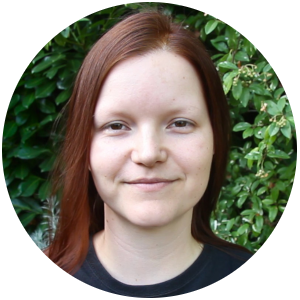Do you want to achieve the best grade, but you're still losing marks? Do you think you know your maths, but your mocks (or any training tests you've done) are still looking worse than you expected? Let's have a look at unnecessary mistakes which cost you your marks.
When I am tutoring either my British students or international students (those for either iGCSE, IB or even some less common exams for different national curricula), I see repeating unnecessary mistakes which cause trouble in getting the grade you're aiming for. I've done a lot of GCSE marking both when working in schools and in my tuition career to become confident enough to say "Yes, they want to give you as many marks as possible for any work you've shown". And that's the key point. And it's the same for other exams as well, not only GCSE which I mentioned above.
So let's have a look at tips you should know and bear in mind when working on your maths exams:
Read the question properly! It's crucial to understand and answer what they are asking for.
Is that discount per month or per whole year? In the second case don't forget to multiply by 12 your monthly discount.
Do they want to know what is less or more? You know that 1.2 kg is less than 12,000 g, but if they were asking, what's more, underline twelve thousand grams, please.
Units! To have 112p or £112 is a huge difference, I bet you agree.
What you convert and when you convert it, doesn't (most of the time) matter, but bear in mind units they want you to use as an answer. And please, make up your mind whether you're working with degrees or radians (that's mainly relevant for you guys in colleges, working on A level and Higher or Advanced Higher maths). Believe me, sin(90) isn't the same as sin(90°) - that said, your calculator might make it look like it is but - the secret is in the correct settings. So check how your calculator is set, as it could cause an unpleasant surprise.
Rounding! If you need to round, do it correctly.
If asked to do so, use the required rounding (three significant figures are - most of the time - not the same as three decimal places, etc.) On the other hand - if your answer should be expressed as a multiple of π (pi, yes, it looks weird in this font), often when working on a circumference or an area of a circle, or later with spheres), do not round your answer, leave π as π, it will not bite you, it's just a number.
Show your work! I cannot highlight this enough. Show-your-work.
When there's work to be seen, there will be marks for you even when your answer is incorrect. No work + wrong answer = no marks. That simple it is. Like an equation I just wrote.
Check your work! When asked to do so, do it. I mean it. Check-your-work.
Practise how to check answers. Reverse calculation is the most commonly used, but any other sensible way of calculation is all right too.
When you have to check 7 x 5 = 35, your checking could be either 35 ÷ 7 = 5 (or equally 35 ÷ 5 = 7, your choice should reflect the information given in the question) but you can use also checking multiplying by using its definition as a sum of n equal numbers like 5 + 5 + 5 + 5 + 5 + 5 + 5 = 35 (or the same with five sevens...)
And check your answer even when not asked to do so, use at least mental maths to avoid mistyping: you can easily type into the calculator 12.8 x 35.6 instead of 12.8 + 35.6. Use common sense to decide, that when we should add those two numbers, we expect the result to be somewhere around 50, not 455.68 as it would be when you (by accident) use multiplying...
Yes, there's more, but these few tips should help you a lot. Then just keep working on your maths knowledge and cover your weak areas. And remember, there's always a way to learn everything, even the worst-looking part of maths (as it could be boring statistics, incomprehensible trigonometry, weird vector algebra, crazy expressions with a billion fractions and powers, logarithms which give you a rash just thinking about them...). The key is in understanding the problem and how the maths works here. Then it's easy.



